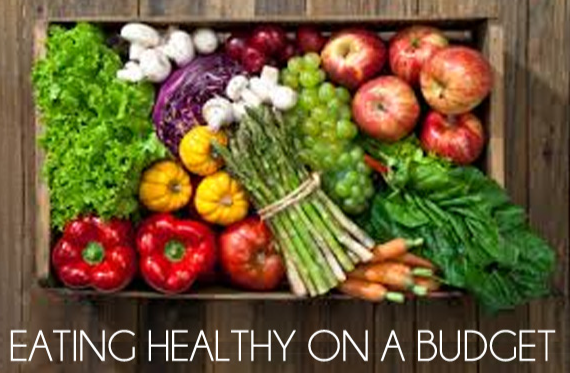
Eating healthy on a budget might sound impossible at first, especially when we see organic labels and “superfoods” priced sky-high in stores. But the reality is, healthy eating doesn’t require fancy ingredients or expensive grocery bills. With some thoughtful planning and a shift in mindset, anyone can eat well without breaking the bank. The first and most important step is meal planning. Taking just 15–20 minutes each week to decide what you’ll eat for breakfast, lunch, and dinner can help you avoid impulse purchases and reduce food waste. This means fewer unnecessary items in your shopping cart and more intentional, balanced meals throughout the week.
Cooking at home is one of the best habits you can develop if you’re trying to eat healthy on a budget. Not only is it far cheaper than eating out or ordering in, but it also gives you complete control over what goes into your food. Simple home-cooked meals like dal and rice, veggie stir-fries, or even homemade soups can be full of flavor and packed with nutrients. Plus, cooking in batches lets you prepare multiple meals at once, saving you both time and money. When grocery shopping, focus on local and seasonal produce. Vegetables and fruits that are in season are not only fresher and more nutritious, but they’re also much more affordable. In places like Nepal, seasonal items like spinach (saag), pumpkin, cauliflower, or tomatoes can be bought fresh from local markets at a fraction of the cost of imported items.
Another great way to cut costs is to buy dry goods in bulk. Staples like rice, lentils, oats, flour, chickpeas, and beans have a long shelf life and are used in countless healthy recipes. Buying them in bulk reduces packaging waste and is often cheaper per kilogram. Be sure to store them in airtight containers to keep them fresh for longer. One area where people unknowingly waste a lot of money is snacking. Packaged snacks like chips, cookies, and sugary drinks might feel affordable in the moment, but they add up quickly and usually contain lots of sugar, salt, and unhealthy fats. Instead, stock up on budget-friendly, nutritious snacks like boiled eggs, roasted peanuts, homemade popcorn, yogurt, or fruits like bananas and apples. They’re much better for your body and wallet in the long run.If you often find yourself throwing away leftovers, consider freezing them. Properly stored leftovers can last days or even weeks in the freezer and make for quick, stress-free meals on busy days. It’s a simple habit that can save you both time and money. Finally, one of the healthiest (and cheapest) things you can do for your body is to drink more water. Staying hydrated keeps your body functioning well, curbs unnecessary snacking, and replaces the need for sugary, expensive drinks like soda or packaged juices.
In conclusion, eating healthy on a budget isn’t about deprivation or going without it’s about making small, smart choices that work for you and your lifestyle. By planning ahead, cooking at home, shopping smart, and focusing on whole, simple ingredients, you can take care of your health without overspending. Your body and your wallet will thank you.
‘‘Eat well, spend less’’
